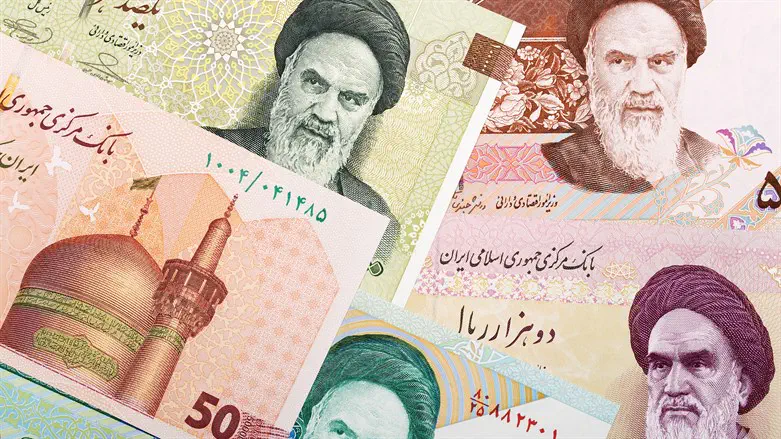
The Iranian rial has sunk to its lowest value in history in the five weeks since the re-election of former US President Donald Trump, the Associated Press reported.
The rial traded at 703,000 to the dollar on November 5, the date of the 2024 U.S. presidential election. It now trades at 777,000 to the dollar, a loss of about 10 percent.
The incoming Trump Administration is expected to renew its maximum pressure campaign against Iran, including the enforcement of powerful economic sanctions.
Last week, The Wall Street Journal reported that Trump and members of his incoming administration have begun reviewing the existing American policy regarding Iran's nuclear development, and are considering direct military action to stop Iran's advances.
The Trump administration is considering several options, the first being a direct buildup of American forces in the Middle East. The USA would send additional troops, planes, and ships to the region, and possibly even begin to execute its own attacks against Iranian nuclear sites.
A second option under discussion is for the USA to sell or supply Israel with the weapons needed to counter the Iranian threat, including advanced interceptor missiles and deep-penetration 'bunker buster' bombs. This option has become significantly more feasible with the fall of the Assad regime and Israel's recent direct attacks on Iran.
The third option under consideration is to continue and increase the existing policies of sanctions and diplomatic initiatives to force Iran to back down. This option benefits greatly from the increased threat of a direct attack and the loss of Iran's regional allies.
Iran was implicated in a plot to assassinate Trump in the months leading up to the November election. In October, US President Joe Biden issued an unusually strong warning to Iran to abandon its plots to assassinate Trump.
In September, Trump wrote on his Truth Social platform, "Big threats on my life by Iran. The entire U.S. Military is watching and waiting. Moves were already made by Iran that didn’t work out, but they will try again. Not a good situation for anyone."
In addition to the expected pressure from the Trump Administration after January 20, Iran has suffered a significant setback in recent weeks with the fall of its ally Bashar al-Assad, who fled Syria after Damascus was seized by rebel forces earlier this month.
